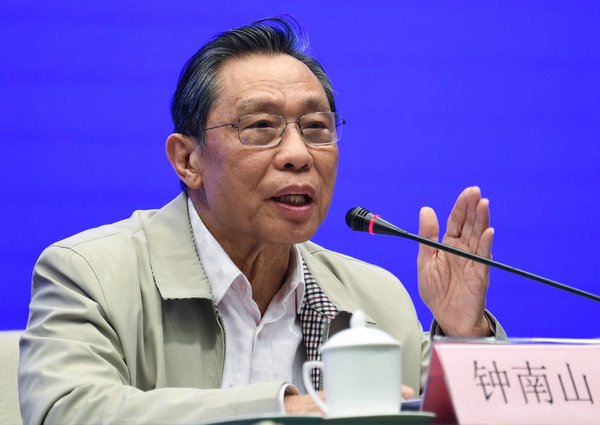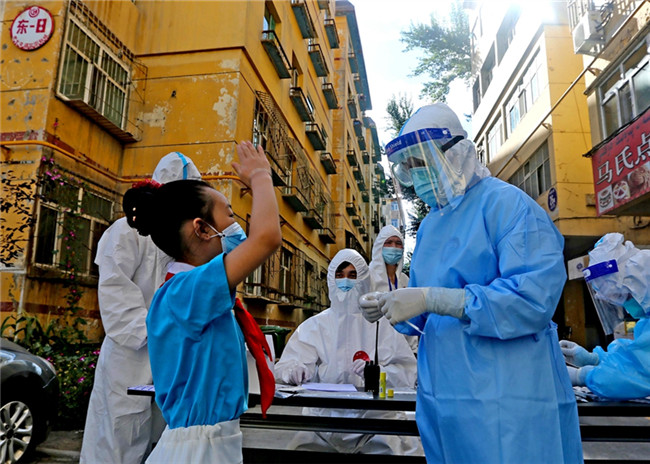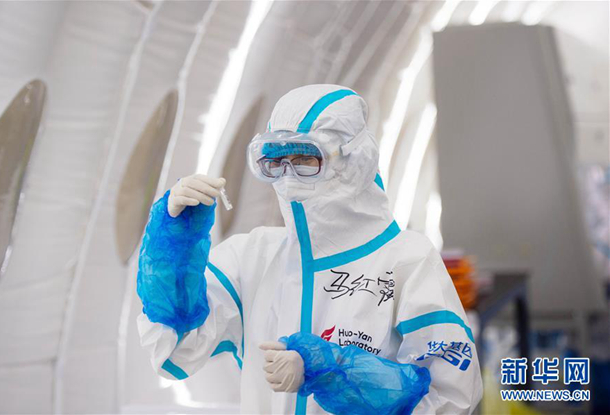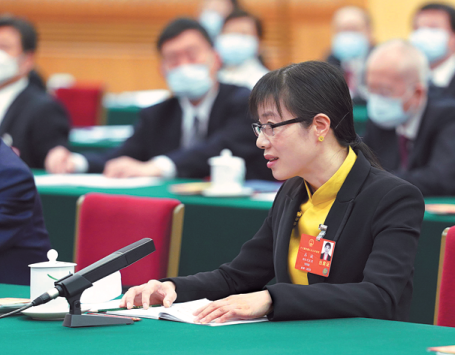
Expert Highlights Traditional Chinese Medicine in Fight Against Novel Coronavirus

Renowned Chinese respiratory specialist Zhong Nanshan speaks at a press conference in Guangzhou, south China's Guangdong Province, Feb. 18, 2020. [Xinhua/Deng Hua]
GUANGZHOU, Feb. 18 (Xinhua) — Renowned Chinese respiratory specialist Zhong Nanshan on Tuesday highlighted the studies on traditional Chinese medicines (TCM) in the fight against novel coronavirus disease (COVID-19).
Speaking at a press conference held in Guangzhou, south China's Guangdong Province, Zhong said the herbal prescription called "Pneumonia No. 1" applied on Jan. 23 had proved effective in the treatment of COVID-19 patients in the province.
According to Zhong, researchers are testing on the already widely used TCM drugs, such as Liushenwan and Lianhuaqingwen, to find out whether they can kill the virus, reduce the virus' access to the cell and lower the incidence of a cytokine storm, meaning the massive inflammation which may lead to death.
These tests may provide some evidence for the application of the TCM during the early and middle stages of the COVID-19, he said.
Yang Zifeng, a professor with the Guangzhou Institute of Respiratory Health and a member of Zhong's team, said through in vitro experiments on 54 existing TCM drugs available on market, researchers have found five that can effectively inhibit the novel coronavirus infection.
"Indicating the anti-viral and anti-inflammation effects of the drugs made from TCM, the experiments give some hope for the treatment of the novel coronavirus. But more clinical experiments are needed to test their clinical effect," he said.
TCM has never missed a single fight against epidemics throughout Chinese history. TCM classics have provided sufficient evidence of how TCM cured epidemic diseases such as smallpox over the past several thousand years.
A specific chapter detailing TCM treatment during a patient's medical observation, clinical treatment and recovery has been included in the latest version of the COVID-19 diagnosis and treatment scheme released by the National Health Commission.
(Source: Xinhua)
 Women Medics in NW China's Xinjiang Contribute to COVID-19 Epidemic Containment
Women Medics in NW China's Xinjiang Contribute to COVID-19 Epidemic Containment Women CPC Members on Front Line of Anti-COVID-19 Battle in Beijing
Women CPC Members on Front Line of Anti-COVID-19 Battle in Beijing Deputy Recalls Role in COVID-19 Fight
Deputy Recalls Role in COVID-19 Fight- Woman Epidemiological Researchers Race Against the Clock on Front Line
 Pic Story of Nurse Who Aided COVID-19 Fight in Wuhan
Pic Story of Nurse Who Aided COVID-19 Fight in Wuhan Volunteer Provides Milk Tea, Back up Anti-Epidemic Workers in NE China
Volunteer Provides Milk Tea, Back up Anti-Epidemic Workers in NE China

 京公网安备 11010102004314号
京公网安备 11010102004314号